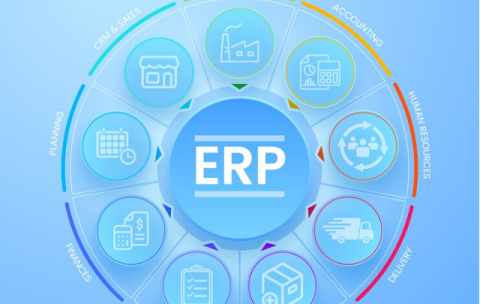Popular Instructors
All Entrepreneurship Courses
Enterprise Resource Planning (ERP) Systems – Integrating Efficiency with ERP System Expertise
Enterprise Resource Planning (ERP) Systems – Integrating Efficiency with ERP …
What you'll learn
Week 1: Introduction to ERP Systems (4 Hours)
Session 1 (2 Hours): Fundamentals of ERP Systems
Overview of ERP Systems and Their Evolution
Key Components and Architecture of ERP Systems
Role and Benefits of ERP in Business Integration
Session 2 (2 Hours): Types of ERP Systems and Vendors
Overview of Major ERP Systems (e.g., SAP, Oracle, Microsoft Dynamics)
Cloud-based vs. On-premises ERP Solutions
Selecting an ERP System: Factors to Consider
Week 2: ERP Implementation and Modules (6 Hours)
Session 3 (2 Hours): ERP Implementation Process
Steps in ERP Implementation
Project Planning and Management for ERP Implementation
Risk Management in ERP Projects
Session 4 (2 Hours): Functional Modules of ERP Systems
In-depth Look at Key ERP Modules (Finance, HR, Supply Chain, etc.)
Integration of ERP Modules in Business Processes
Hands-on Exercise with a Simulated ERP Environment
Session 5 (2 Hours): ERP System Customization and Configuration
Customization vs. Configuration in ERP Systems
Best Practices in ERP System Customization
Case Studies on Successful ERP Customizations
Week 3: ERP and Business Process Integration (6 Hours)
Session 6 (2 Hours): Business Process Reengineering and ERP
Understanding Business Process Reengineering (BPR)
Aligning ERP Systems with Business Processes
Impact of ERP on Organizational Structure and Culture
Session 7 (2 Hours): ERP System Upgrades and Maintenance
Managing ERP System Upgrades
Routine Maintenance and Support for ERP Systems
Training and User Support Strategies
Session 8 (2 Hours): Data Management and Analytics in ERP
Role of ERP in Data Management and Business Intelligence
Leveraging ERP Data for Analytics and Decision Making
Case Study on ERP-Enabled Business Analytics
Week 4: Advanced Topics and Emerging Trends (4 Hours)
Session 9 (2 Hours): Emerging Trends in ERP
ERP in the Era of Big Data and IoT
Mobile ERP and Cloud Computing Trends
Future Outlook of ERP Systems
Session 10 (2 Hours): Capstone Project and Course Wrap-Up
Group Project on ERP Implementation Strategy
Presentations and Discussions on ERP Case Studies
Course Summary and Discussion on Further Learning Opportunities
The course would ideally blend theoretical insights with practical, hands-on exercises, possibly using an ERP simulation tool or case studies. The final capstone project should involve applying ERP concepts to a real-world business scenario, encouraging students to think strategically about the use of ERP systems in an organizational context. This structure ensures that MBA students gain a comprehensive understanding of ERP systems, their implementation challenges, and their strategic value in business operations.



